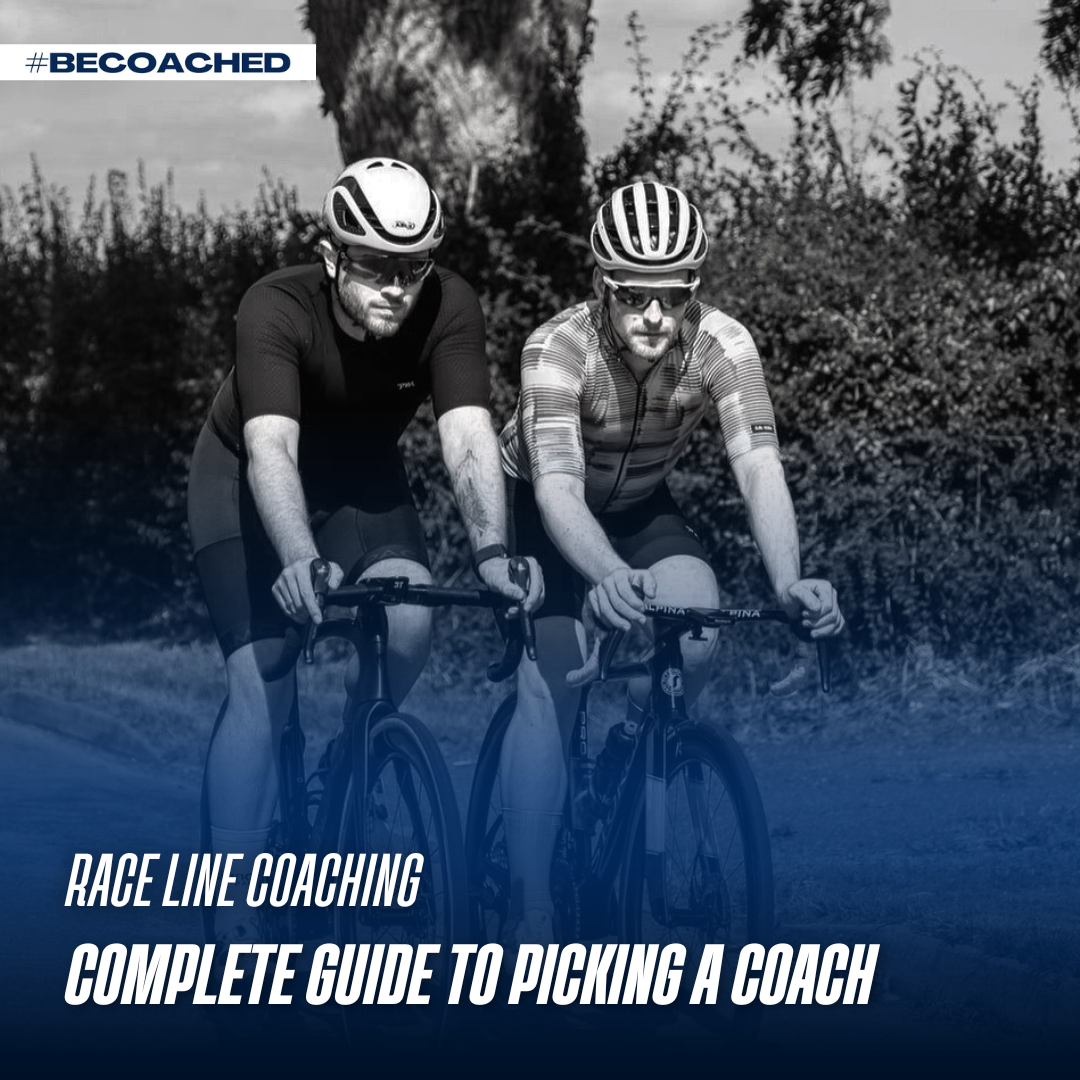The Complete Guide to Choosing and Getting the Most from a Cycling Coach
Introduction
In the UK, cycling has never been more popular — from weekend sportive riders to competitive racers chasing national titles. But with so much training advice online, it can be hard to know what truly works for you.
That’s where a cycling coach comes in — providing tailored guidance, structure, and accountability to help you reach your goals faster, avoid injury, and enjoy your riding more than ever.
This guide is your complete, evidence-based resource for understanding how to choose the right coach and how to get the most out of that relationship — based on Raceline Coaching’s philosophy of being Focused, Tailored, and Excellent in every aspect of performance support.
1. What a Cycling Coach Actually Does
A cycling coach isn’t just someone who sends you a plan. At the highest level, they:
Assess your current ability through data, testing, and honest conversation.
Design a training programme that balances your goals with your available time.
Monitor progress through structured metrics like power, heart rate, and perceived exertion.
Adjust your plan based on performance, recovery, and life changes.
Support mental focus by keeping you motivated and accountable.
At Raceline Coaching, the aim is not to overload you with miles — it’s to make every pedal stroke count.
2. Why Coaching Works: The Science
Cycling performance is built on four pillars:
Aerobic Base – The endurance engine that lets you ride further and recover faster.
Threshold Power – The sustainable high-intensity pace that wins races.
Neuromuscular Power – Short, explosive efforts that decide climbs and sprints.
Recovery – The ability to adapt and get stronger between sessions.
A good coach structures training in periodised phases so these systems develop together — avoiding the common trap of “riding hard every day” which often leads to burnout.
1000 Podiums WorldWide
Join the very best cyclists from around the world, spanning all ages from enthusiastic youth to accomplished elite seniors, representing a truly global community.
3. How to Choose the Right Cycling Coach
When evaluating a coach, look for:
Qualifications and experience – Coaching is both science and art; your coach should have both academic knowledge and real-world results.
A tailored approach – One-size-fits-all plans rarely work.
Open communication – Unlimited contact means questions get answered quickly and adjustments are made when life intervenes.
Data-informed, not data-obsessed – Numbers matter, but they’re interpreted alongside how you feel.
Holistic thinking – Bike fit, off-bike training, nutrition, and mental strategies all count.
4. What to Avoid (Red Flags)
No personalisation – A generic PDF plan sent once a month is not coaching.
Ignoring recovery – Overtraining signs should be spotted early.
No clear progress tracking – Without benchmarks, it’s impossible to see if you’re improving.
Rigid communication windows – If you can only contact your coach once a week, support is limited.
Number 1 blogs in the cycling industry on cycling training
5. How to Get the Most Out of Your Cycling Coach
Even the best coach can only work with the information they have. To maximise your progress:
Be honest about your available time and recovery needs.
Log all your sessions — even the ones that didn’t go well.
Give subjective feedback — rate how hard sessions felt, not just the numbers.
Embrace rest days — they’re part of the plan, not a sign of weakness.
Stay consistent — training works best when it’s steady over time.
Becoached
〰️
Becoached 〰️
6. Training Methods in the UK Context
British weather and terrain create unique challenges for training:
Indoor training with smart trainers allows precise control of intervals, year-round.
Zone-based outdoor rides develop specific energy systems while taking advantage of the varied UK landscape.
Cyclocross and gravel riding add technical handling skills and strength.
Time-efficient training is key for busy riders balancing work, school, or family.
A good UK cycling coach knows how to blend indoor precision with outdoor variety.
7. Tools and Resources to Support Coaching
Raceline Coaching uses a combination of:
Power meters & heart rate monitors for accurate training load measurement.
Training platforms to deliver and track sessions.
Zone calculators to help riders train at the right intensity.
Custom testing protocols to track improvements in power, endurance, and efficiency.
8. Common Questions About Cycling Coaching in the UK
Q: Do I need to be a racer to have a cycling coach?
No — coaching is just as valuable for sportives, charity rides, or personal fitness.
Q: How quickly will I see results?
Most riders feel improvements in 6–8 weeks, but sustainable, long-term gains are the goal.
Q: Can a coach work around my job and family commitments?
Yes — Raceline Coaching specialises in tailoring plans around real life, not the other way round.
Q: What if I get sick or injured?
Plans can be paused, adjusted, and adapted to aid safe recovery.
Conclusion
A cycling coach is more than a training plan — they’re your partner in performance. The right coach will tailor every aspect of your training to your goals, your body, and your lifestyle.
At Raceline Coaching, the commitment is simple: Focused on your goals, Tailored to your life, and dedicated to Excellence in results and support.
The next step is yours — whether you’re preparing for your first sportive or chasing a new personal best, a coach can help you get there smarter, faster, and healthier.




